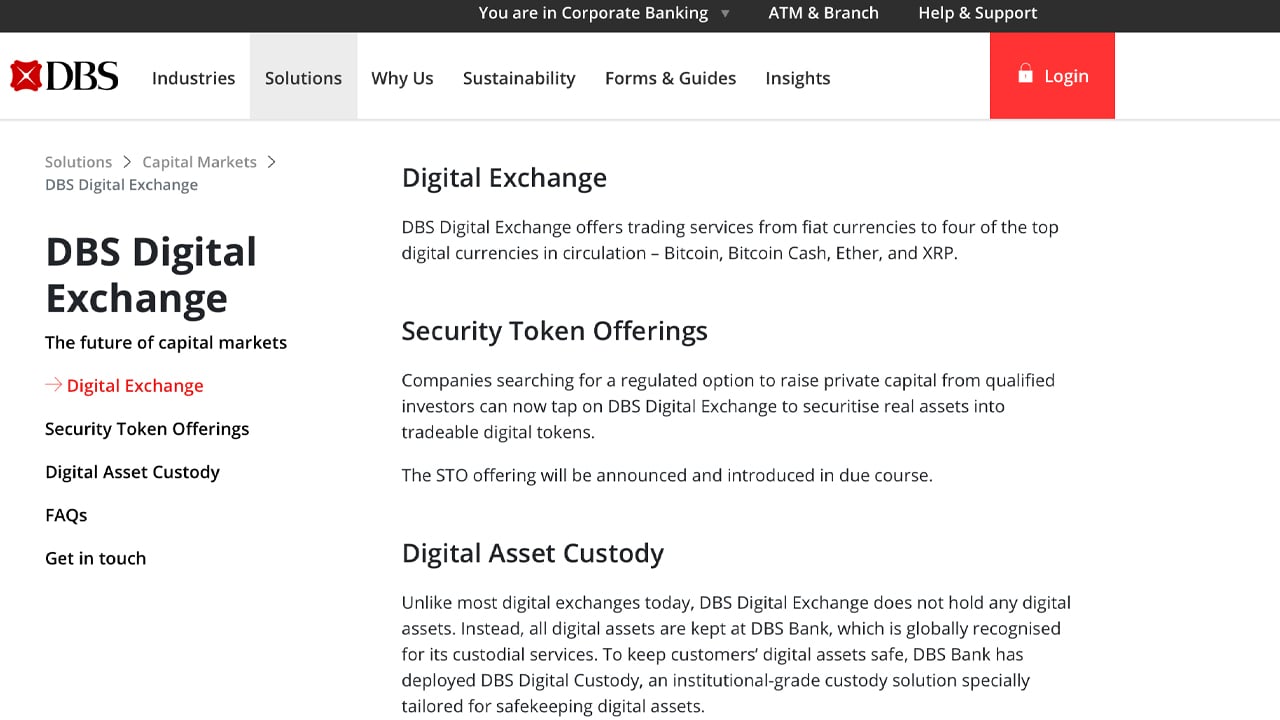The Singaporean multinational banking and financial services corporation DBS published an announcement revealing it was launching a cryptocurrency exchange. The announcement was later removed by the company, but crypto proponents have learned about the upcoming support for assets like bitcoin, ethereum, and bitcoin cash.
DBS Bank Ltd is Southeast Asia’s largest bank in terms of assets under management (AUM), as the corporation’s 100+ branches hold more than $600 billion today. The bank published information on the subject and then swiftly removed the announcement. However, a number of cryptocurrency proponents caught the DBS statement before the bank deleted it. The Twitter account dubbed ‘Fiat Minimalist’ tweeted a screenshot and said: “Cat’s out of the bag.”
“This has been in the works for 2 years,” Fiat Minimalist told his 2,300 followers. “All banks will have to follow suit. Imagine being bearish [toward] BTC,” he added. The announcement has also been caught in the web’s cache and is now hosted on Archive.org as well. “DBS Digital Exchange offers trading services from fiat currencies to four of the top digital currencies in circulation – Bitcoin, Bitcoin Cash, Ether, and XRP,” the DBS Digital Exchange website reads.

The DBS Digital Exchange page also states:
Unlike most digital exchanges today, DBS Digital Exchange does not hold any digital assets. Instead, all digital assets are kept at DBS Bank, which is globally recognised for its custodial services. To keep customers’ digital assets safe, DBS Bank has deployed DBS Digital Custody, an institutional-grade custody solution specially tailored for safekeeping digital assets.
The news about the newly created DBS Digital Exchange follows the announcement made by the payments giant Paypal last week. Additionally, in September it was revealed that U.S. banks are now allowed to hold reserves for stablecoin issuers.
The new DBS trading platform also plans to allow for security token offerings. “Companies searching for a regulated option to raise private capital from qualified investors can now tap on DBS Digital Exchange to securitise real assets into tradeable digital tokens,” DBS notes.
Furthermore, DBS thinks that cryptocurrencies are “the future of capital markets.”
“Digital assets are poised to be the future of tomorrow’s digital economy. With DBS Digital Exchange, a bank-backed digital exchange, companies, and investors can now leverage an integrated ecosystem of solutions to tap the vast potential of private markets and digital currencies,” the DBS exchange announcement concludes.
Source: news.bitcoin.com
What do you think about Southeast Asia’s largest bank DBS announcing a crypto exchange?
Let us know in the comments section below.

Comments
Post a Comment